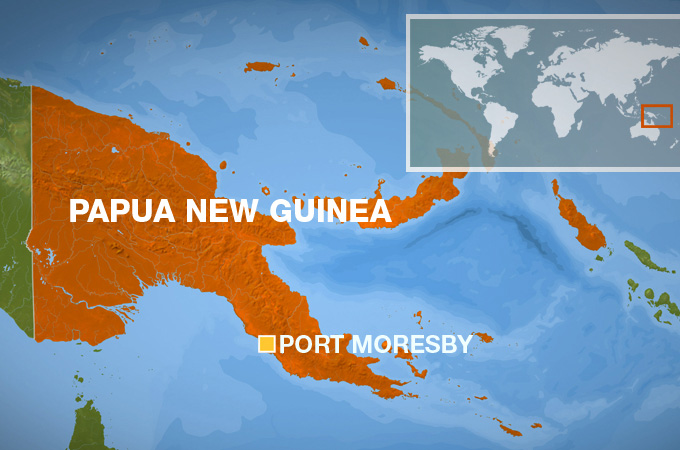Papua New Guinea PM says mutiny ‘over’
Incumbent says mutiny leader has “been dealt with”, after soldiers loyal to former PM had seized army headquarters.

 |
| Soldiers loyal to Somare seized the army headquarters and put the army chief under house arrest [EPA] |
The army mutiny in Papua New Guinea’s capital has ended, according to the incumbent prime minister.
A faction backing the former prime minister, Michael Somare, had raided army headquarters earlier on Thursday, putting the army chief, Brigadier-General Francis Agwi, under house arrest and installing a new military leader.
Somare and the present incumbent, Peter O’Neill, are locked in a power struggle, with both of them laying claims to the top job in the South Pacific island nation.
Al Jazeera’s Andrew Thomas, following the events from neighbouring Australia, said O’Neill had announced that the mutiny was over and that the mutiny leader, Colonel Yaurra Sasa, “had been dealt with”.
“But he wouldn’t confirm whether he’d been arrested, nor was he able to confirm the location of Sasa or the released brigadier”, our correspondent said.
“One side of politics is saying it’s over. That doesn’t necessarily mean it’s true.”
The government had earlier said the mutiny amounted to treason, and that the death penalty would follow if the soldiers did not give themselves up,”
The Australian foreign minister said in a statement that Agwi had been released.
Somare acknowledged that he had ordered Agwi’s arrest, and that his ousted cabinet had appointed Sasa, the mutiny leader, to “take control of the army”.
After seizing the army headquarters, Sasa said he was not mounting a coup, but demanded Somare be reinstated as prime minister as ordered by the national supreme court last month.
Power struggle
Residents in Port Moresby said the city was quiet, but tense, with roadblocks around the main army barracks.
The developments follow weeks of political instability, with Somare challenging the legitimacy of O’Neill’s government.
Somare was replaced by O’Neill in August after his seat was declared vacant while he received medical treatment in Singapore.
 |
But in December, the constitutional court ordered Somare be reinstated, saying the proper procedures to replace had not been followed.
O’Neill dismissed that decision, and then passed retrospective laws legitimising his transition to power.
Elections are due in June.
For many Papua New Guineans, the crisis is a contest between the old political guard of Somare – known as “the chief” who led the country to independence – and O’Neill’s administration, which is seen offering a fresh, more open alternative.
Local reporters said it was unclear how much support the rebels had inside the military, believing they may be only a small band, with most soldiers either backing O’Neill or dissatisfied with both O’Neill and Somare.
Papua New Guinea, with a population of six million, has a history of political and military unrest. An army mutiny in 1997 overthrew the government after it employed mercenaries to try and end a long-running secessionist rebellion on the island of Bougainville.